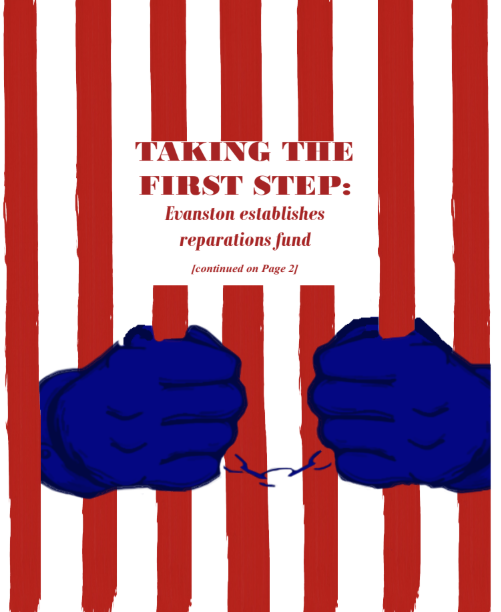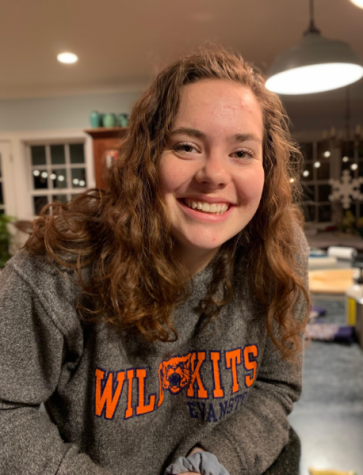Taking the first step: Evanston establishes reparations fund
December 13, 2019
On Nov. 25, the Evanston City Council voted 8-1 to approve a 3% tax on the sale of recreational marijuana towards a reparations fund starting Jan. 1. The idea is to create a fund for all black residents of Evanston who have disproportionately been affected by redlining, Jim Crow laws and arrests for possession or use of marijuana before legalization.
The proposal came from the Equity Empowerment Commission to the City Council. In response, the council created a sub-committee consisting of aldermen and city staff. The sub-committee was formed in July to discuss the possibilities of creating the fund, with the goal in mind of closing the opportunity gap and benefitting black residents who have suffered long-term systematic discrimination from Evanston policy.
“We had to secure or restrict the funding to the reparation fund, and we will continue working on exactly how we will disperse those funds. So we still plan to work on initiatives that bridge the wealth divide, the opportunity divide, possibly even the education gap,” Ald. Robin Rue Simmons (5th) said in an interview with The Evanstonian.
The fund will be used to help all black residents in Evanston, regardless of immigration status. In recent years, the black population of Evanston has been steadily declining from 22% to just above 16% in 2018, according to The Washington Post. The sub-committee hopes that the implementation of the reparations fund will stabilize, or even augment, that number. Though the fund is specifically intended to benefit black residents of Evanston, the criteria for who can receive that money has yet to be determined.
“We have yet to establish exactly what the criteria is to qualify, as well as the initiatives that we will use to bring reparative policy. If they are black Evanston residents, then they have been impacted by discrimination,” Simmons said.
With Evanston’s complex history of redlining wards and racial discrimination, Simmons emphasized that black residents should benefit most from the sales of recreational marijuana because of the unequal policing of black users in comparison to white users
“Our data on marijuana arrest [records] show that 71% of marijuana arrests are black Evanston residents over the last 36 months– and studies show that black and white [residents] use cannabis at the same rate, so there’s clearly a disparity,” Simmons says.
The sales of marijuana will be taxed until the fund reaches $10 million, and the projected annual intake is around $700,000 a year, but the city believes that the fund will reach its goal before the first 10 years, according to Simmons. She stresses that anyone can contribute to the fund outside of the cannabis tax through individual or corporate tax-deductible donations.
The initiative is already gaining national traction, being mentioned on NowThis News and attracting actor and activist Danny Glover to an Evanston town hall meeting on December 11 as a keynote presenter.
Simmons, as well as the rest of the city council sub-committee, want the implementation of Evanston’s reparation fund will inspire other cities to repair damages done to black communities, especially those disproportionately affected by the policing of drugs.
“Every city has a different story. Their damages may be different, their revenue sources may be different, their community makeup may be different, so I don’t think that our model should be a blueprint, but it certainly should be an inspiration to consider doing some very bold work,” Simmons said.





















